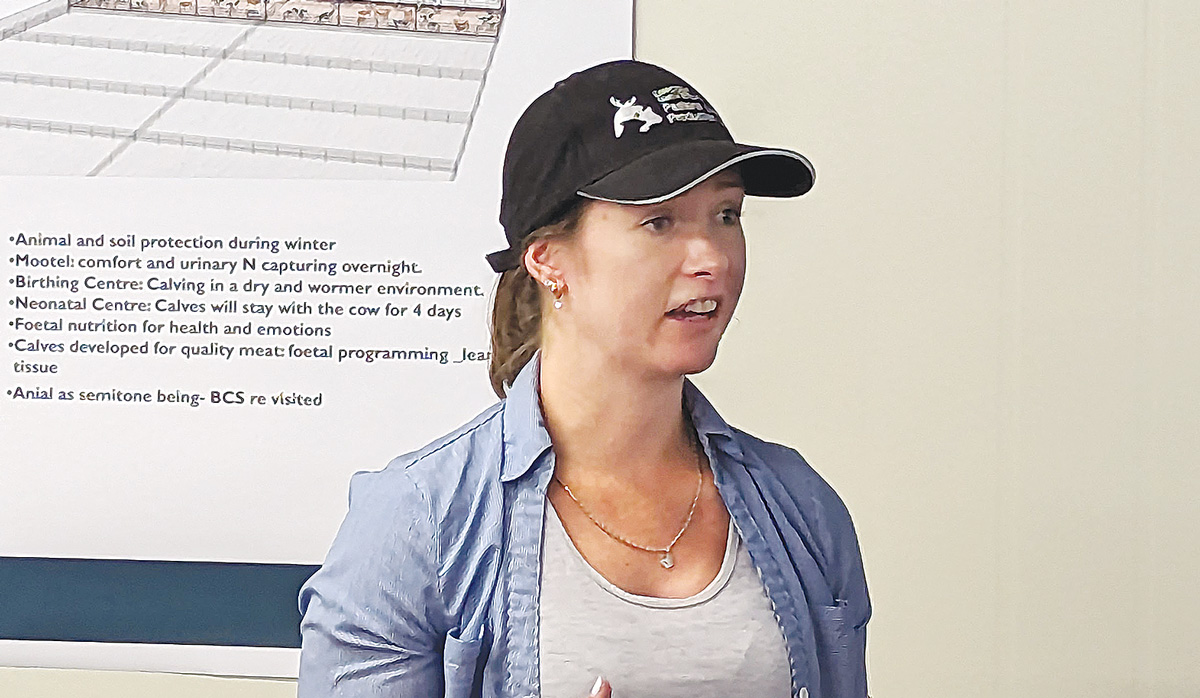Wired for Science: Understanding the feeding habits of mealybug
Fussy children might be frustrating, but fussy mealybugs could help protect the New Zealand wine industry from grapevine leafroll-associated virus 3.
Lincoln University has launched a new research venture which aims to lead the way towards a more ethical and sustainable way of dairying.
The Integral Health Dairy Farm is being establishd acros a large portion of the University's Ashley Dene Research and Development Station at Springston.
The project focuses on "producing healthier dairy products, removing the negative connotations and environmental impact of dairying, providing a positive emotional environment for animals, offering a new range of narratives for the industry and enhancing the sense of belonging to the land".
The project is led by Professor of Livestock Production Pablo Gregorini, who told a recent open day that the farm aimed to produce "not milk, but health".
"We are members of nature's community. What we do to them we do to ourselves, only by nurturing them can we nurture ourselves. Only by healing them can we heal ourselves."
Gregorini also heads the University's Pastoral Livestock Production Lab, which has recently released research demonstrating that cows bred for low-N emissions and fed on diverse pastures produce milk containing higher levels of substances valuable to human health.
 |
|---|
|
Farm research manager, Dr Anita Fleming said they brought a more biochemical diversity into the pasture system. |
He said there was a need to re-engage with a society which was looking for changes in production systems and where some people were seeking to live lives absent of animal products.
Gregorini said the project was a collaborative effort with input from universities students and researchers around the world.
The farm's guiding principles include:
To achieve those goals, the farm will feature what they call multipiece adjacent pastures - strips of various forages - and multifunctional browsing sites, in the form of many small blocks of trees, shrubs and herbs giving cows both shelter and a choice of feed giving both a "hedonic benefit" and self-medication for minor ailments.
Structures will include a sheltering "mootel" and birthing unit.
The farm's research manager, Dr Anita Fleming, said they wanted to bring more biochemical diversity into the pasture system and allow cows to make their own decisions about what to eat.
She said cows find it difficult to selectively graze mixed pastures, so they have come up with the concept of adjacent pastures, with strips of different forages that the animals can easily distinguish and pick from.
Stocked with crossbred cows, the farm would implement a calving system that was less stressful for calves and mothers, and produce an animal that isn't considered just a by-product.
The open day also included presentations from some of the collaborators including suppliers of high-tech monitoring and management systems.
The farm will include what is called Green Artificial Intelligence to constantly measre carbon and greenhouse gs flow in real time.
It also intends using ear tags from Waikato-based ProTag, which monitor all the usual parameters of cows' vital signs and activity, but in a small solar-powered ear-tag package without collars or counterweights.
ProTag co-founder Tyrel Glass told the open day that part of the solution to its small size was using a power-saving system in which only a few tags at any time would be communicating whole herd data over significant distances. Most ear tags in the herd would be communicating with low power only over short distances to those relays. The method would "smear" power consumption across the entire herd, he said.
Voting has started for the renewal of DairyNZ's milksolids levy.
The most successful catchment groups in NZ are those that have 'a source to sea' approach.
Associate Agriculture Minister and Manawatu dairy farmer Andrew Hoggard says the free trade agreement (FTA) negotiated with India is not a bad deal and his party, Act, will support it when it goes before Parliament.
Newly released data from Environment Canterbury (ECan) Farm Environment Plan (FEP) audits are showing a dramatic lift in environmental performance across the region.
A solid recovery of global dairy prices this year makes a $9.50/kgMS milk price almost a shoo-in for this season.
As New Zealand marks the United Nations’ International Year of the Woman Farmer 2026 (IYWF 2026), industry leaders are challenging the misconception that women only support farming.
OPINION: Fonterra may be on the verge of selling its consumer business in New Zealand, but the co-operative is not…
OPINION: What does the birth rate in China have to do with stock trading? Just ask a2 Milk Company.